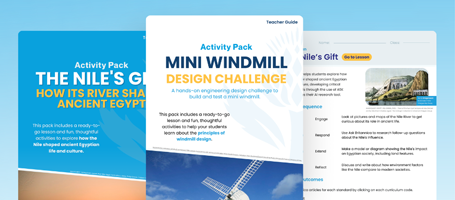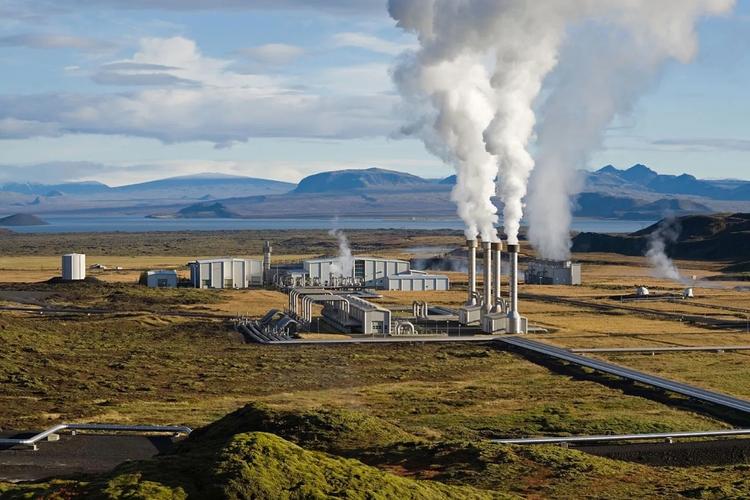Looking for a way to inspire your students and make a real difference in the world? Teach them about renewable energy!
As we try to build a more sustainable future, renewable energy sources have become a critical part of the conversation. What exactly are they, and why are they so important? In this post, our educators suggest some activities and resources that will help your students form an understanding of the power of clean energy.
Resource Packs
The Britannica “Renewable and Non-Renewable Energy” resource packs are accessible to schools who are subscribed to the Australian, New Zealand, Asian, UK and US versions of Britannica School. They contain age-appropriate articles, images or videos on renewable and non-renewable energy sources, pollution, climate change and other environmental impacts.
Resource Pack Links:
Britannica School (Australia) Primary level resource pack↗
Britannica School (Australia) Middle level resource pack↗
Britannica School (New Zealand) Primary level resource pack↗
Britannica School (New Zealand) Middle level resource pack↗
Britannica School (UK) Foundation level resource pack↗
Britannica School (UK) Intermediate level resource pack↗
Britannica School (US) Elementary level resource pack↗
Britannica School (US) Middle level resource pack↗
Britannica School (Asia) Elementary level resource pack↗
Britannica School (Asia) Middle level resource pack↗
Britannica School (Asia version in China) Elementary level resource pack ↗
Britannica School (Asia version in China) Middle level resource pack ↗
Lesson Background
Of the many resources to be found in nature, some of these things are renewable, which means that they can be replaced. Other kinds of resources are non-renewable, meaning that they are limited in supply. Many people fear that humans are destroying the world’s natural resources. Clearing land for farming and building wipes out forests and the animals that live there. Cars and factories use huge amounts of oil every day. They also release poisonous chemicals that pollute the air, water and soil. Many people are working to conserve, or protect, natural resources. In addition, scientists are working on ways to produce energy and goods without causing pollution or using up valuable natural resources.
Activities
The following activities can be completed using resources found in the Britannica School ‘Renewable and Non-Renewable Energy’ resource packs.
- Brainstorm a list of energy sources used for cooking, heating and cooling and transport (Examples might include: coal, water, oil, gas, fossil fuels, solar, wind etc.) Research each type of energy source and complete the table describing where it comes from and how it generates power.
- What are possible environmental problems related to energy production and use? Identify and discuss some examples with the class. Consider ‘air pollution’, ‘greenhouse gases’ and ‘climate change’. Select one environmental problem and create a mind map detailing your research.
- Select one renewable energy source, such as wind, water, solar, geothermal or waves. Create an information report detailing this source of energy and how it is good for the environment.
- Using the information researched in step 4, create a presentation to share with the class.
Featured Image from BRITANNICA SCHOOL: The Nesjavellir Geothermal Power Plant, Iceland. © Gretar Ívarsson. Accessed 22 Mar. 2023.
These activities and resources have been created using content from Britannica School, the go-to site for safe, comprehensive student research. Contact your librarian to find out if your institution already has access. Find out more about Britannica School or set up your own free trial.
More Educator Resources
Sign up with your email for more free resources from Britannica.


